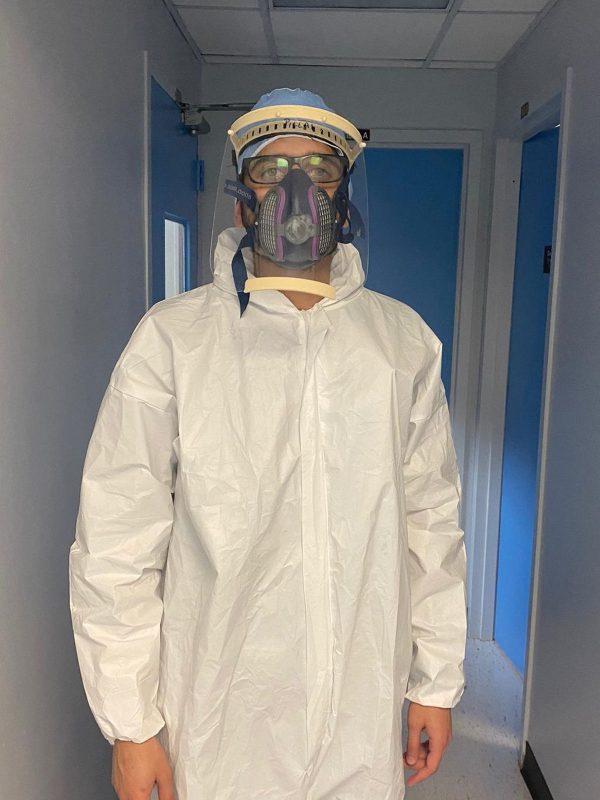(Trinidad Guardian) Trinidad-born Dr Michael Pillai, 28, is one of the ‘heroes’ working on the frontline in a hospital in East Brooklyn, New York.
Pillai, who is originally from Diego Martin, is an internal medicine resident and is in his second year of residency.
Working through this COVID-19 pandemic happened to fall during his training so he did not have a choice but to work.
“I was needed at the hospital. In a matter of months the way we once knew life had changed. The cases increased rapidly and so did the complications,” Pillai said.
“I’ve worked in the ICU as well as on the admitting team during this period. While in the ICU the entire unit was COVID positive of varying ages. During admittance, more than 90 per cent of admissions to the hospital were due to respiratory problems from COVID-19. It was necessary to create new areas of the hospital to accommodate the amount of COVID-19 patients and residents from all specialties were helping with the work that was necessary,” he added.
Pillai, in sharing his experience with Guardian Media, said the work load increased “exponentially and more was expected of us as physicians.”

He said it has taken an emotional toll both on families and on health care workers including nurses and physicians.
“The death rate increased substantially as did the amount of codes being called for rapidly deteriorating patients. I have personally seen people that I work with who have suffered from this virus that lead them needing critical management. These include; doctors, nurses, clerks, respiratory therapists,” Pillai said.
“Though I would say the number of admissions for COVID-19 has been decreasing comparing last week to the prior week. This virus is affecting people of all ages especially with rapid deterioration in the obese population necessitating ventilator support,” he added.
Pillai said COVID-19 causes a decreased oxygen level amongst some patient called hypoxia, “This lack of oxygen causes respiratory distress necessitating oxygen delivery to these patients by external measures. When these patients do not respond to external measures of oxygen delivery then the decision is made for intubation and connection to a ventilator.”
“Some of these patient’s with COVID-19 develop Acute Respiratory Distress Syndrome (ARDS) and at this point the chances of successful extubation from the ventilator decreases significantly. It is also important to note that these are with the critical patients,” he added.
Pillai noted that people are also recovering with supportive care such as treating the fevers, adequate hydration and self-isolation, “During this pandemic visitors have not been allowed due to the risk of spread of the virus. That being said, patients’ families have to be called daily with updates on patient care as they cannot see their family members so there are unfortunate cases where people are dying alone under these circumstances.”
This process, he further explained, has been difficult in many aspects “but it is important that we work with what we have and work together to operate as efficiently as possible.”
In giving advice to T&T, Pillai urged all to, “stay at home and refrain from gatherings.”
“Remember to leave your shoes outside your door and wipe your phones and your glasses. We are facing this pandemic together and it is important that we look out for each other and maintain social distance,” he said.
“I often wonder if I would have chosen to go into medicine had I anticipated something like this. In the grand scheme of things we all have our part to play, this just happens to be mine, and I humbly embrace it,” he added.





